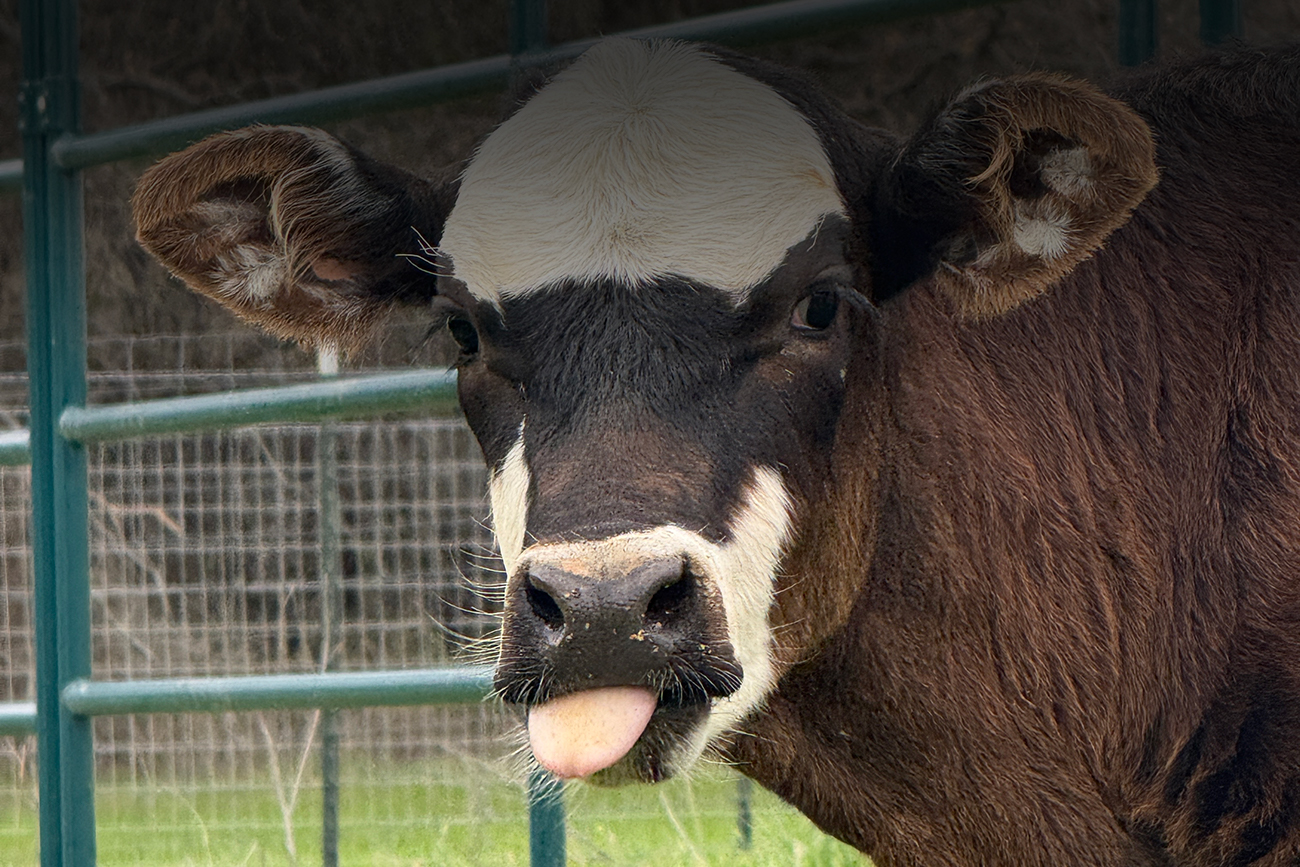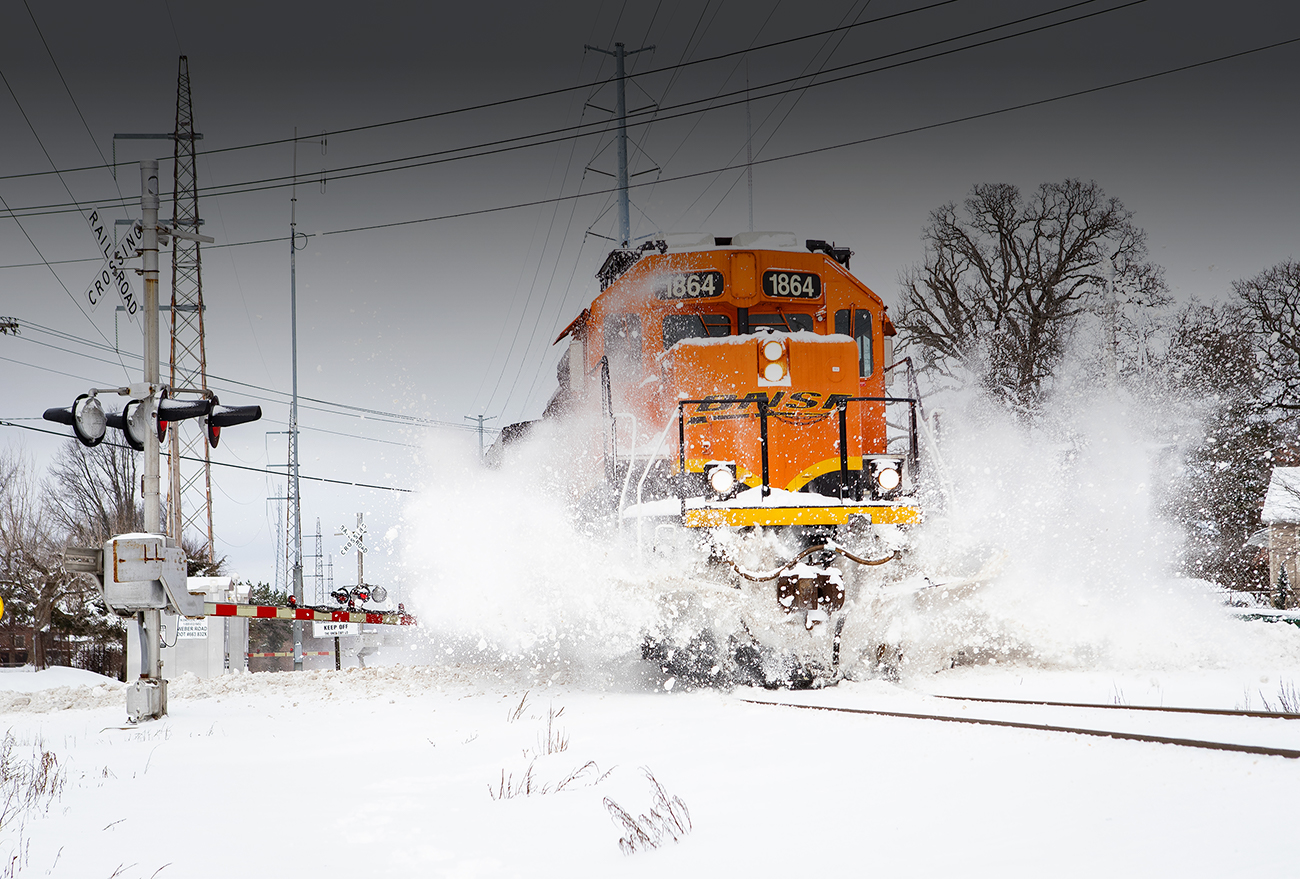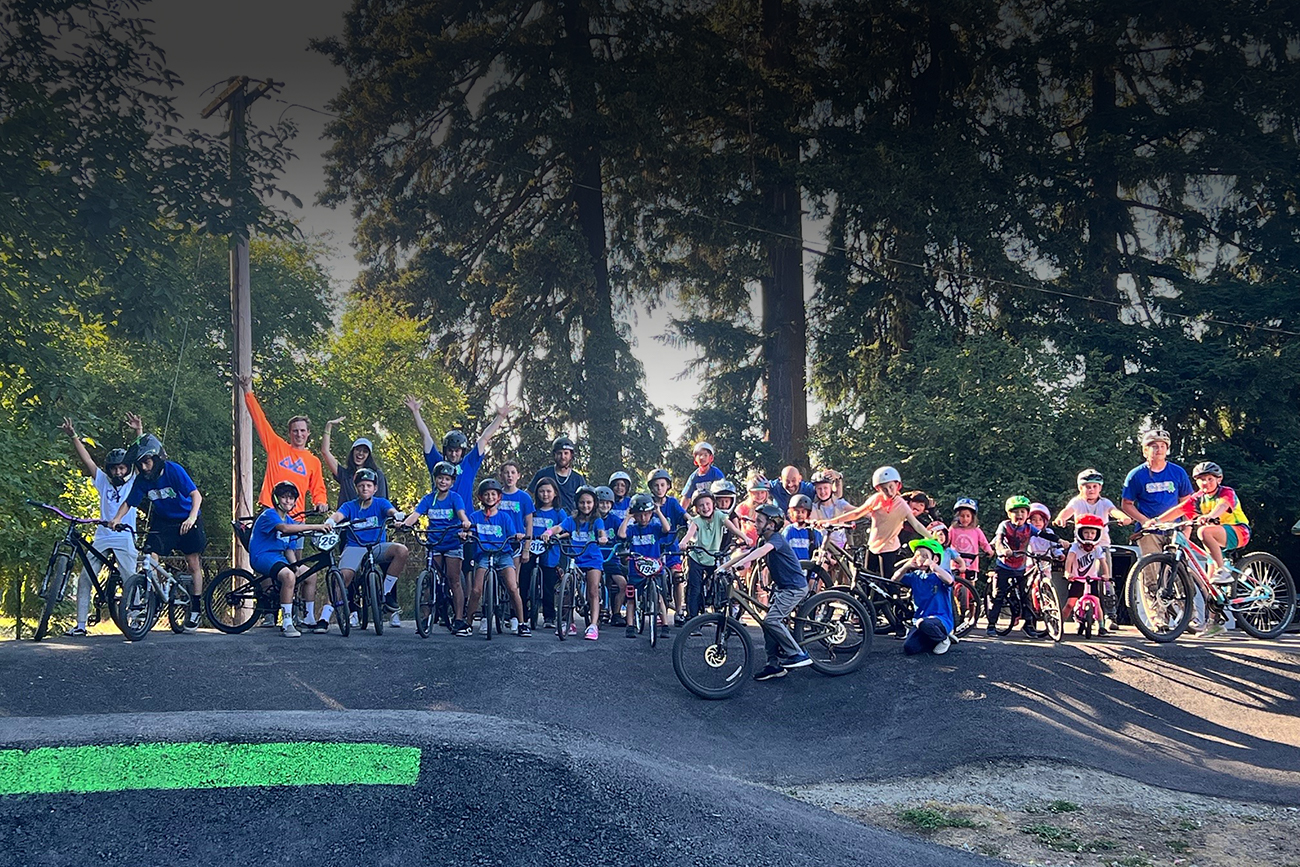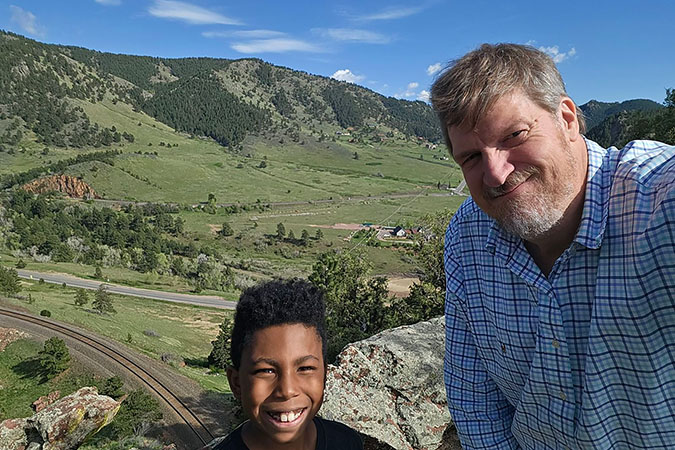
Like father like son: Erik Lindgren passes down the family love for railfanning
By EUNICE ARCHILA
Staff Writer
For 10-year-old Daecian and his father, railfanning is a way of life. His parents Erik and Dawn Lindgren grew up around trains and have shared their love of trains with Daecian.
As a child, Erik Lindgren traveled with his own father, who photographed trains throughout Iowa, Minnesota and Wisconsin. Lindgren caught the rail photography bug and took his first train pic in 1983.
“I learned that talking to railroaders is a great idea,” he said. “If I see a hyrail (a truck that can move on rail or over the road), I like to let them know we’re in the area and they’re pretty friendly.”
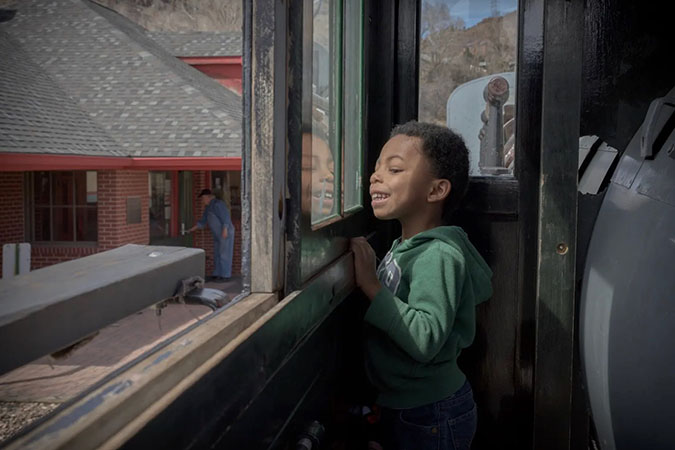
Daecian’s first railfanning memory was at age 2 – though he’d been going along for the ride since he was an infant.
“I was in my car seat,” he said. “We were driving into the mountains, and I heard the train because it was very loud.”
Today he has his own gear. Before a railfanning trip, Daecian gets his memory cards ready, takes his camera battery off the charger and packs it all into his bag. For his Canon EOS 7D, Daecian’s go-to’s are the 28-135 mm lens and a 100-400mm lens for long shots.
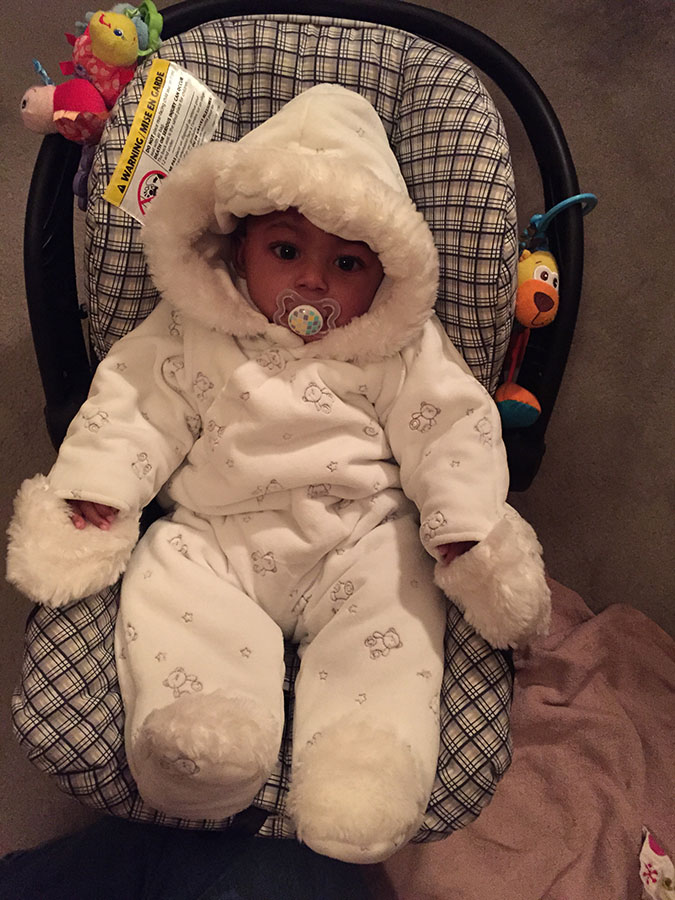
At age 9, Daecian got his first wooden train set in his Easter basket, which propelled him into model railroading. Today he’s a member of the Youth in Model Railroading group.
“We go to shows and learn all aspects of the hobby. And there’s even a store where we volunteer,” said Daecian. “It’s a real store. People from around the area donate their trains, scenery materials, books and pretty much any item related to model railroading. It’s fun.”
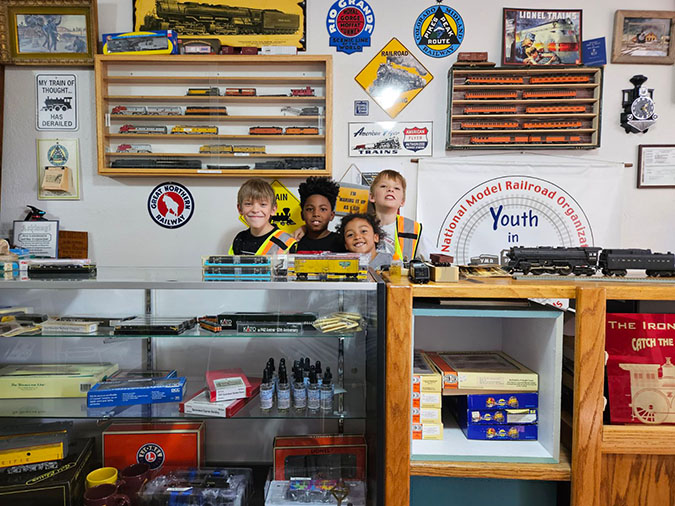
His dad and the model railroading shows have inspired Daecian to continue learning more about trains by creating layouts.
“It’s a creative hobby and not just about trains,” Lindgren said. “It's about creating, research, history, reading books, maintaining, learning skills such as painting, designing, math, engineering, soldering and building kits or creating them from scratch.”
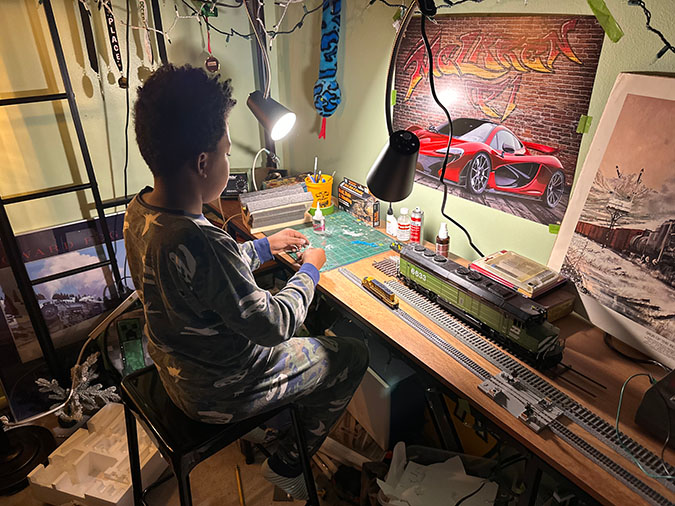
When he’s not helping his son with his layout, dad is planning their next train-spotting trip, noting that photographing trains can be as simple (sitting near a railroad crossing) or as complex (knowing train schedules and routes) as one likes. The effort put into it can be seen in the quality, details and composition of each photo.
“It starts early, often before 6 a.m. for the best light, depending on the subject or objective,” said Lindgren. “Often, it’s about getting information about a specific locomotive or train. That information can come up anytime of the day and if time allows, we go after it.”
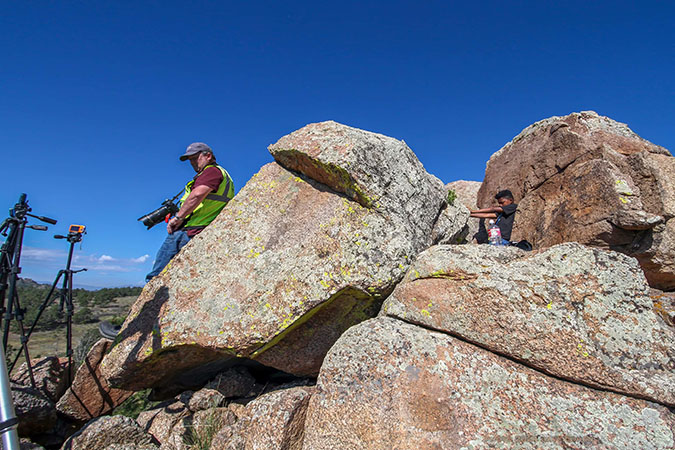
Usually, Lindgren picks a location and then contacts a few people to figure out where the trains will be. Although it's just an approximation, he determines a location to photograph by calculating average train speeds and markers.
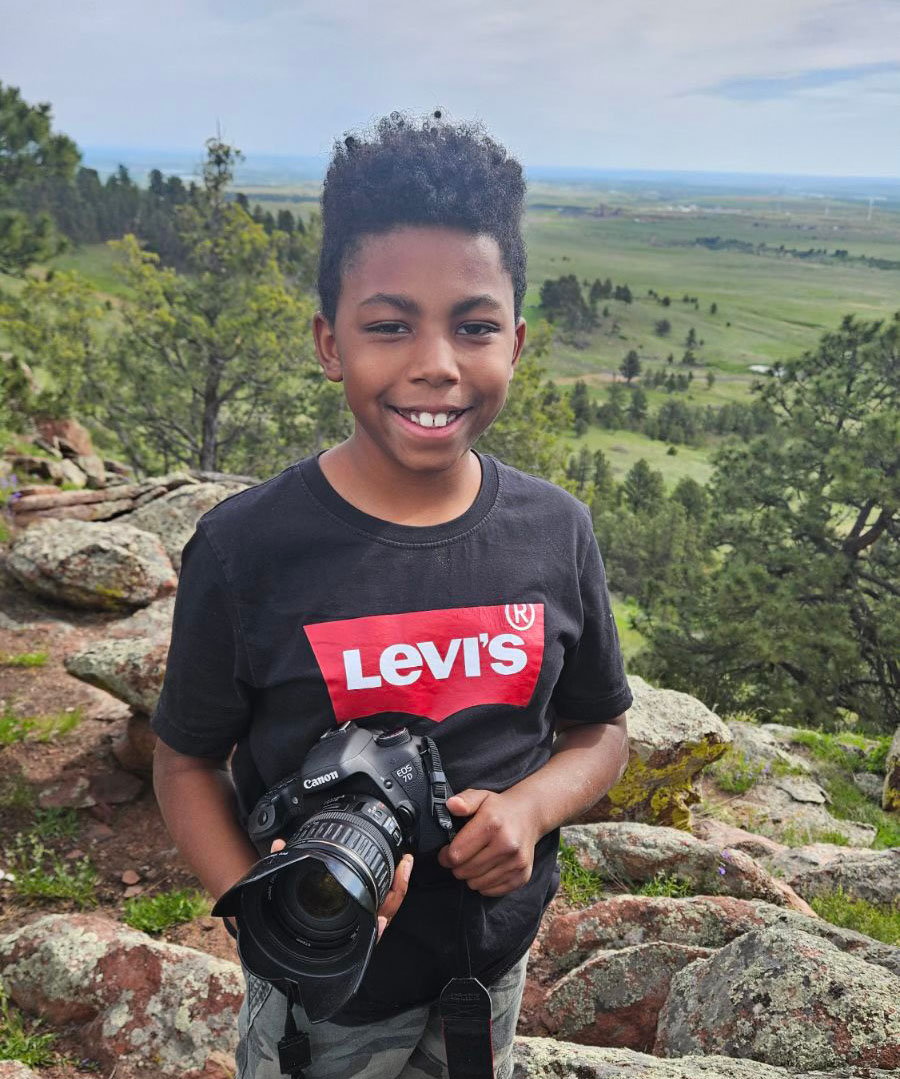
“We try to get into the right position at the right time,” said Lindgren. For new railfans, he suggests to “pick a spot you like and wait.”
Although choosing a spot to take pictures is different every time, Daecian likes to pitch in ideas and recommend locations. Typically, dad and son wait five to 10 minutes for trains to come by. “But sometimes it takes much, much longer than that,” added Lindgren.
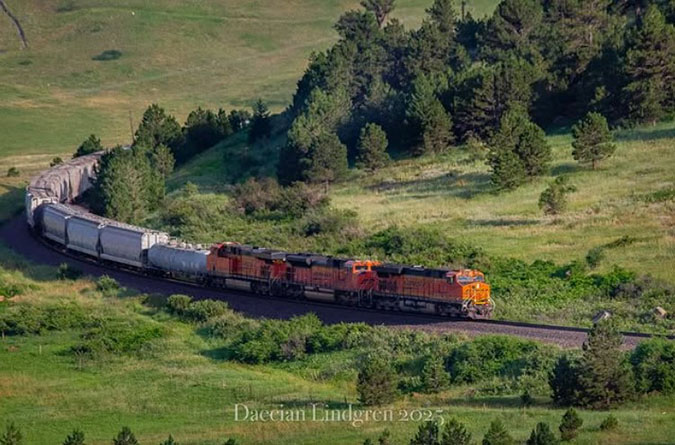
The more scenic spots take a bit more effort to get to, even having to walk a mile or more. “If you make an investment to a place, you want to stay there as long as you can until you can get a picture," said Lindgren.
Colorado, the Lindgrens’ homebase, has a plethora of locations primed for photographers. This past winter Lindgren took jaw-dropping pictures, with a few featured in our 2025 Winter Photo Contest of BNSF trains in the Colorado Rockies.
Daecian’s talent behind the camera is impressive. His photos capture trains (as well as bugs and nature) in their element.
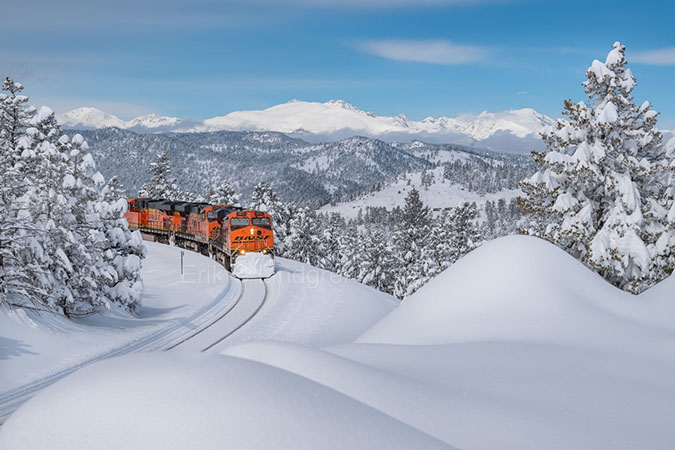
“I went through safety training with BNSF years ago,” Lindgren said. “They taught us how you should never walk on the track. In railfanning, there's always that safety consideration.”
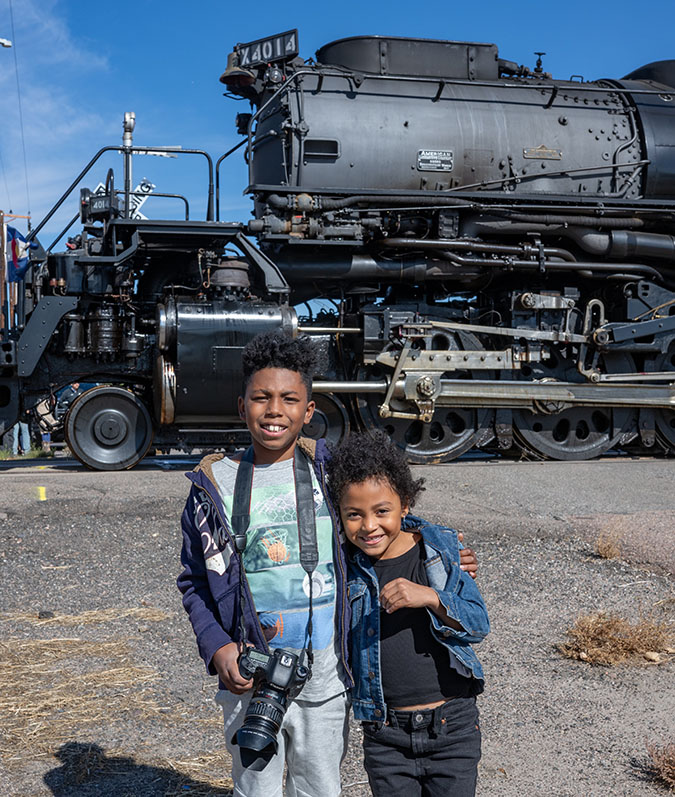
Safety is key when railfanning. Being aware of the tracks is important, and so is the wildlife nearby. Once, Lindgren and a friend encountered a grey wolf near Bond, Colorado, that he thought was a dog. “We were a mile from my friend’s truck. He looked at me and said, ‘That's not a dog.’ I was surprised how big and fast it was,” he recalled.
Daecian and Lindgren saw bald eagles and bears when they went railfanning in Wyoming. “Carry bear spray with you! There's one in my camera bag,” Lindgren advised.
One of the most challenging aspects of railfanning is waiting for trains during harsh weather. “One day we were out there in minus 12-degree weather,” said Daecian. When trains get stalled or stopped, a fan can leave empty handed.
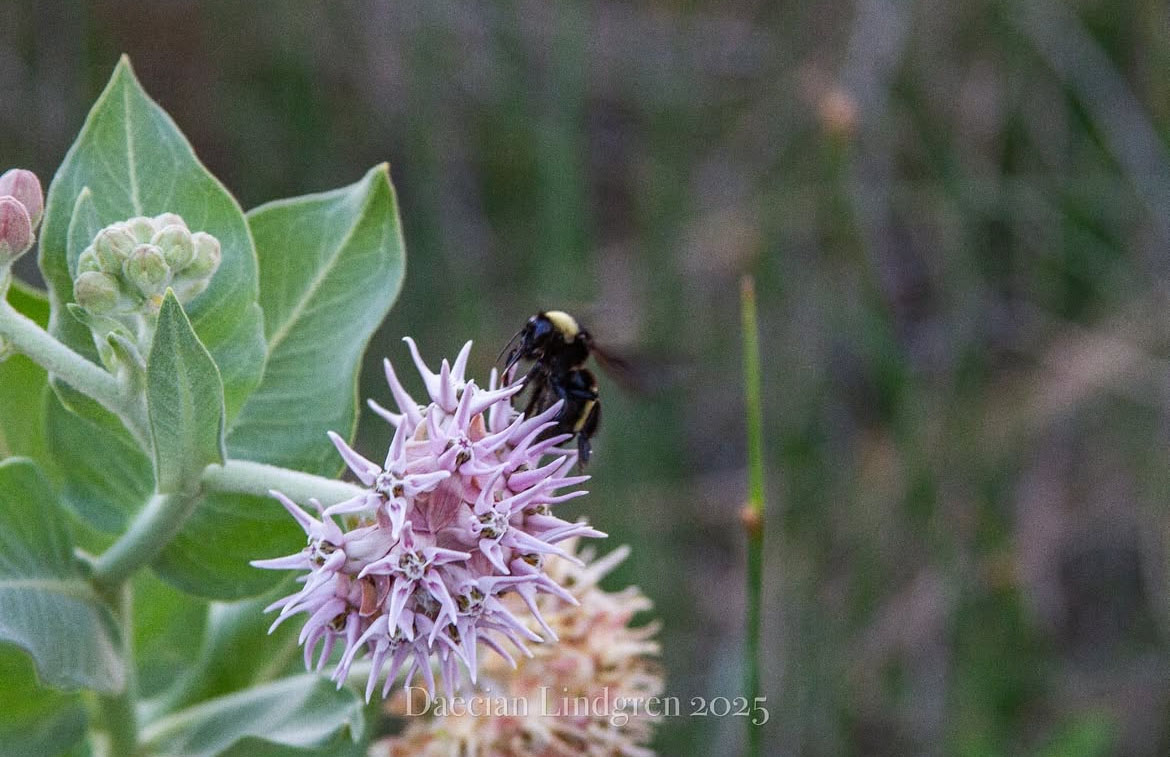
Despite its challenges, there are other benefits.
“I love being with my dad and his friends,” Daecian said. “I like nature, too. I’m also improving my photography. Because of Instagram, I get to share my photos not just with people I know but with people around the world. Everyone gets a chance to see it."
We can’t wait to see more of the Lindgrens’ creations!
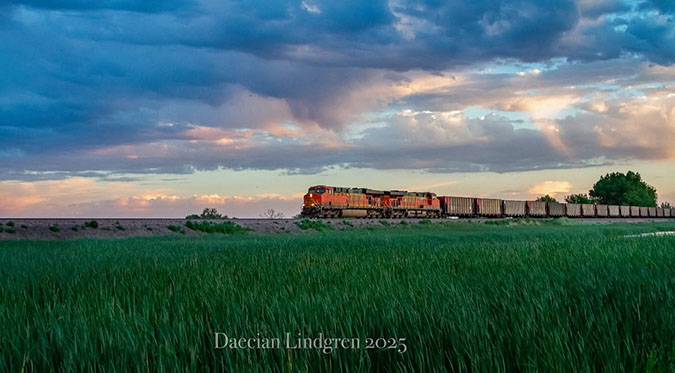
DID YOU KNOW?
You can find Erik and Daecian’s photography online. Check out more of their photography, model railroading and artwork.
· https://www.erikclindgren.com
